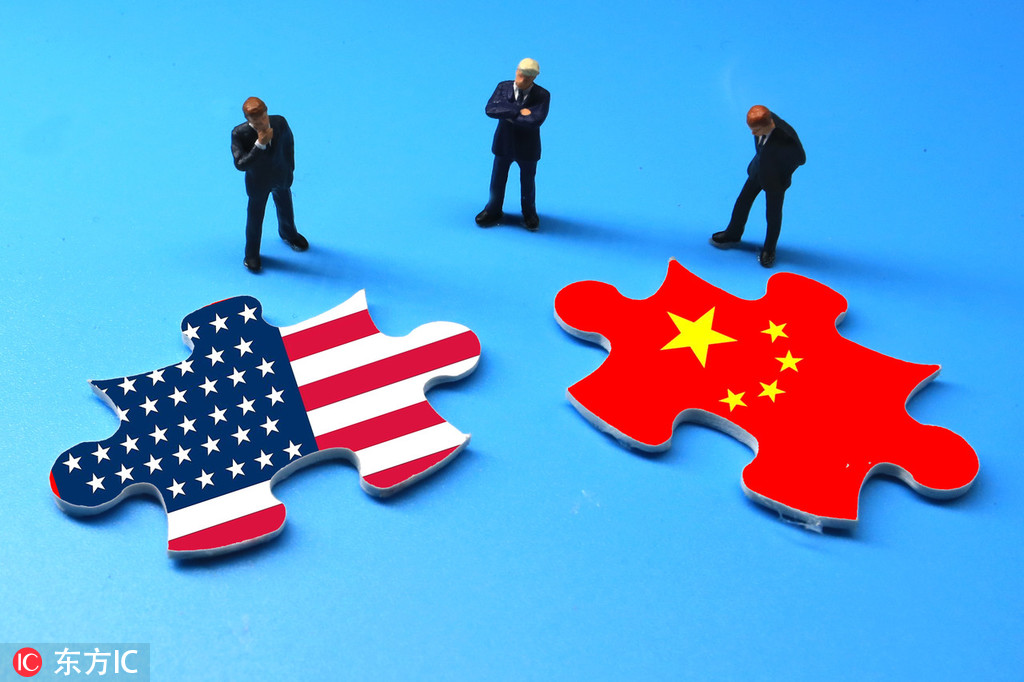Time for the US to begin collaborating with China on global food security


The United States Senate is currently debating and discussing a bill introduced by Senator Mike Rounds to prohibit Chinese investment in US agriculture, citing national security concerns.
This legislation would also preclude Russian enterprises from investing in US agricultural projects among others. This knee-jerk reaction to China-based Fufeng Group's proposal to construct a corn milling facility 12 miles from a US Air Force base in North Dakota is shortsighted and ignorant, exacerbating the already dire global food security situation.
Rounds' assertion that Fufeng's investment compromises and jeopardizes American national security is far-fetched, without any evidence. If any one wants to spy on the facility, there are far more effective and efficient methods than constructing a corn mill 12 miles away.
Even if the US perceives this as a legitimate concern, it should be addressed diplomatically through trade agreements rather than by prohibiting investments.
Instead, the senator is spreading fear of China gaining more sway and primacy in the global food system, fueling and motivating opposition to Chinese investment in US agriculture.
Furthermore, the legislation forbidding Chinese agricultural investment is attributed to the country's rising anti-China protectionism sentiment since former president Donald Trump seized power. The Trump administration's policies, such as imposing tariffs on Chinese imports and challenging China's trade practices at the World Trade Organization, served as evidence to this.
Douglas A. Irwin, a Dartmouth College professor of Economics, published a scholarly article titled "The False Promise of Protectionism: Why Trump's Trade Policy Could Backfire" in 2019. According to the article, "A trade policy based on 'America first' would do nothing to create new manufacturing jobs nor mitigate trade deficit, or the disparity between imports and exports. Instead, it risks triggering a global trade war that would prove damaging to all countries."
Irwin continued, "a slide toward protectionism would also undermine the institutions that the United States has long worked to support, such as the World Trade Organization, which have made meaningful contributions to global peace and prosperity."
The legislation proposed by Rounds is essentially an attempt to reinstate Trump's "America first" trade policy under a Democratic administration. If enacted into law, it will not enhance US national security or generate new employment. Instead, it would be risking an initiation of a trade war, endangering world food security, and undermining the US's credibility internationally.
Creating yet another trade barrier is detrimental to all, particularly at a time when global food security is deteriorating owing to climate change, COVID-19-related supply chain disruptions, and Russia's conflict in Ukraine.
Global food security is a challenging and complicated issue that necessitates international cooperation rather than protectionism, which exacerbates the situation.
Food insecurity directly impacts over 761 million people, or 19 percent of the global population. Although this figure is anticipated to decrease over the next decade, the growing world population and the consequences of climate change will upsurge the demand for food globally.
Rather than erecting barriers that prevent and hinder the ability of national trading, we must collaborate to boost production efficiency and enhance distribution channels to ensure that everyone has access to a sufficient food supply.
Rounds' proposal for a US Senate resolution should be rejected considering that it will only aggravate global food scarcity.
Additionally, Rounds' legislation is rendered even more regrettable and disappointing by the fact that it was introduced at a time when the Biden administration has vowed to "build back better" and prioritize global challenges such as food security a top priority.
At this year's G7 Leaders' Summit in Germany, the United States and its allies pledged to invest $4.5 billion to help guarantee food security for the most vulnerable individuals around the world in the wake of Russia's war in Ukraine, which has resulted in serious shortages of wheat and sunflower oil.
This prompts the concern of whether the US will continue to prioritize "America first" at the expense of international cooperation, or if it is genuinely committed to upholding its obligations to ensure food security for the world's most vulnerable.
Making international trade more problematic and complicated while simultaneously devoting billions of dollars on initiatives aimed at preserving food security are undoubtedly in conflict.
Corn, the world's most significant food crop, is a mainstay in the diets of billions of people worldwide. China is currently the world's second-largest corn producer, trailing only the United States, and the Fufeng Group's intended US$700 investment in a corn milling operation in North Dakota would have vastly increased global output of this essential crop.
Moreover, it is a critical component of many commercial and consumer goods, including biofuels, plastics, and animal feed. Consequently, investing in Fufeng Group's corn facility would have been a positive step toward solidifying the US's position as the world's leading corn provider.
Senators like Rounds, however, appeared to be more engaged in settling scores than in identifying solutions to the dilemmas confronting our world.
China is home to almost one-fifth of the world's population, has been exerting enormous efforts to expand its food production. In 2013, it has initiated a series of agricultural reforms that have contributed in elevating productivity and enhancing food security. China's agricultural initiatives have had favorable impact on the world food supply in addition to enhancing food security for its own inhabitants.
The US must stop playing meaningless sophomoric games and begin collaborating with China to develop solutions to global food insecurity issues. We cannot afford to squander time battling each other when climate change, COVID-19-related supply chain disruptions, and Russia's conflict with Ukraine are all influencing today's food supply.
The author is founder of Save HK and a member of the Central Committee of the New People's Party of the Hong Kong Special Administrative Region.
The views do not necessarily reflect those of China Daily.


































